-
Doctors
-
Specialities & Treatments
Centre of Excellence
Specialties
Treatments and Procedures
Hospitals & Directions HyderabadCARE Hospitals, Banjara Hills CARE Outpatient Centre, Banjara Hills CARE Hospitals, HITEC City CARE Hospitals, Nampally Gurunanak CARE Hospitals, Musheerabad CARE Hospitals Outpatient Centre, HITEC City CARE Hospitals, Malakpet
HyderabadCARE Hospitals, Banjara Hills CARE Outpatient Centre, Banjara Hills CARE Hospitals, HITEC City CARE Hospitals, Nampally Gurunanak CARE Hospitals, Musheerabad CARE Hospitals Outpatient Centre, HITEC City CARE Hospitals, Malakpet Raipur
Raipur
 Bhubaneswar
Bhubaneswar Visakhapatnam
Visakhapatnam
 Nagpur
Nagpur
 Indore
Indore
 Chh. Sambhajinagar
Chh. SambhajinagarClinics & Medical Centers
Book an AppointmentContact Us
Online Lab Reports
Book an Appointment
Consult Super-Specialist Doctors at CARE Hospitals

Multiple Sclerosis
Multiple Sclerosis
Multiple Sclerosis Treatment in Hyderabad, India
Trusted and Comprehensive Treatment of Multiple Sclerosis
Fighting from a chronic disease like multiple sclerosis and looking for the best treatment? then you have landed at the right place. CARE Hospitals offer the best cure for multiple sclerosis. This disease affects the central nervous system of the spinal cord, brain, and optic nerves. And, symptoms can be varied throughout the body. In the initial stages, the patient can suffer from symptoms like numbness in limbs or tingling and blurred vision. In severe cases, vision loss, mobility problems, and paralysis are reported (it is quite common).
Discovering the cause of multiple sclerosis
Scientists do not offer an exact cause of MS (multiple sclerosis) but they believe that MS is an autoimmune disorder that impacts the central nervous system of a human. If a person is suffering from autoimmune disease, then healthy tissues are attacked by the immune system just like bacteria or viruses. In multiple sclerosis, the immune system assaults the myelin sheath that protects and surrounds the nerve fiberes at the same time causing inflammation. This disease results in scar tissues in varied areas. Doctors call this sclerosis or scars areas lesions or plaques. They primarily impact:-
-
The presence of white matter in some areas of the brain
-
Spinal cord
-
Brain stem
-
The cerebellum is responsible for coordinating balance and movements
-
Optic nerves
With the growth of lesions, nerves can get damaged. Due to this, brain electrical pulses stop the smooth flow and disable the body from attempting certain functions.
Multiple sclerosis has been categorized into four types:-
- RRMS (Relapse-remitting MS) - This is considered the most common type as around 80% of people are diagnosed with this at the initial stage. This includes episodes of fresh and growing symptoms that are followed by remission periods during that time a few symptoms go away completely or partially.
- CIS (Clinically isolated syndrome) - It is known as the first or single episode in which symptoms last around 24 hours. At a later stage, it is called RRMS.
- PPMS (Primary Progressive MS) - Symptoms of multiple sclerosis deteriorate progressively in absence of remission or early relapses. It is reported among 20% of people.
- SPMS (Secondary progressive MS - Once people have experienced remission or relapse episodes, then this disease starts progressing steadily.
Come to us when you have early symptoms and signs
By now, you are aware of the fact that MS impacts the central nervous system that controls each action of our body, so it may affect different body parts, such as:
- Tingling and numbness - A needle or pin-type sensation is felt as the earliest symptom. It may affect the legs, arms, body, and face.
- Weakness of muscles - With the symptoms growing, people may start developing weak muscles in the absence of stimulation that further resulting in nerve damage.
- Bladder issues - This is called an early sign where a person does not have control over urination and finds it difficult to empty his bladder.
- Sign of Lhermitte - It is like a sensation of electric shock at the time of moving your neck.
- Vertigo and dizziness - These are problems that are accompanied by coordination and balance issues.
- Bowel issues - Faecal impaction is caused due to constipation which may further result in bowel incontinence.
- Sexual dysfunction - Both females and males start losing interest in sex.
- Vision issues - First people report tremors. After this, they also experience blurred or double vision. This may be a total loss or partial loss of vision. There is a pain in eye movement and one eye is affected at a time.
- Memory and learning issues - The patient finds it hard to plan, concentrate, multitask, prioritise and learn.
- Depression - Nerve fibere damage or demyelination might be damaged in the brain that results in emotional changes.
- Pain - This is a usual symptom of MS, especially neuropathic pain. Other pains are due to muscle stiffness. A few less common symptoms include hearing loss, headache, itching, breathing issues, speech disorders, and more.
Diagnosis of multiple sclerosis by our specialists
Our experts map out all the causes such as age, genetic factors, sex, infections, smoking habits, vitamin D or B12 deficiency, etc. Once we are done with knowing the potential causes and medical history of the patient, it is time that our doctors recommend neurological and physical examination. Sometimes, a single test is not enough according to the severity, so we go for different strategies for diagnosis criteria, which includes:
-
Spinal fluid analysis is able to evaluate antibodies that indicate earlier protein consistency or infection.
-
MRI scan for spinal cord and brain to explore lesions.
-
An evoked diagnosis is done to evaluate electrical activity for stimuli response.
Specialized treatment for multiple sclerosis
It is true that there is no complete cure for multiple sclerosis but we have treatment for it to show its progression. Our treatment is effective to reduce relapses severity and relieving the potential symptoms. For a few patients, we also use alternative or complementary therapies.
While there is currently no cure for multiple sclerosis (MS), the focus of treatment is on symptom management, minimizing relapses (periods of symptom exacerbation), and slowing the progression of the disease. A comprehensive treatment plan may encompass the following:
- Disease-Modifying Therapies (DMTs): Various medications approved by the FDA are available for the long-term treatment of MS. These DMTs are designed to reduce the frequency of relapses, slow down the progression of the disease, and prevent the formation of new lesions on the brain and spinal cord.
- Relapse Management Medications: In the event of a severe relapse, neurologists may recommend high doses of corticosteroids. These medications aim to swiftly reduce inflammation and impede damage to the myelin sheath surrounding nerve cells.
- Physical Rehabilitation: MS can impact physical function, and maintaining physical fitness and strength is crucial for preserving mobility. Physical rehabilitation plays a vital role in managing the effects of the disease on physical abilities.
- Mental Health Counseling: Coping with a chronic condition like MS can pose emotional challenges, and the disease itself may affect mood and memory. Seeking support from a neuropsychologist or engaging in other forms of emotional support is integral to effectively managing the overall impact of the disease.
Prevention
Disease-modifying therapies stand out as the most effective approach to reduce the frequency of flare-ups, also known as relapses or attacks, in individuals with multiple sclerosis (MS). However, leading a healthy lifestyle is equally crucial, as the choices made can contribute to slowing the progression of the disease and improving overall well-being.
Adopting certain lifestyle changes can positively impact the condition:
- Maintaining a Healthy Diet: While there is no specific "magic" diet for MS, experts recommend a well-balanced diet comprising abundant fruits and vegetables, whole grains, healthy fats, and lean protein. Limiting the intake of added sugars, unhealthy fats, and processed foods is also advised.
- Engaging in Regular Exercise: MS can lead to muscle weakness, balance issues, and difficulty walking. Regular aerobic exercise, along with flexibility and strength training, is essential to strengthen muscles and preserve physical function.
- Stress Management: Stress can have both physical and emotional implications, impacting overall well-being. Managing stress through activities such as yoga, meditation, exercise, and seeking support from a mental health provider is important. Adequate stress management can also improve sleep and alleviate MS-related fatigue.
- Avoiding Smoking and Limiting Alcohol Intake: Smoking and excessive alcohol consumption are associated with the exacerbation of MS symptoms and may accelerate disease progression. Quitting smoking is beneficial for overall health and supports the management of MS.
Medications for slow progression
Our doctors recommend DMT (disease-modifying therapies) that have been approved by FDA (Food and drug administration) to treat MS relapsing forms. These work on modifying the functions of the immune system. Our doctors give these in varied ways via infusion, injection, or mouth. The intervals that a patient needs these drugs also vary from patient to patient.
Our aim is to offer the best treatment to our patients so along with impactful medications, we also provide potential physical and rehabilitation therapies. We recommend physical therapy to restore and maintain maximum movement ability. Occupational therapy for self-care, therapeutic usage of work, and maintaining physical and mental function. Cognitive, vocational, and occupational therapies also work wonders for the patients. Have queries in your mind, share them with us, and get the best guidance and treatment.
Our Doctors
-
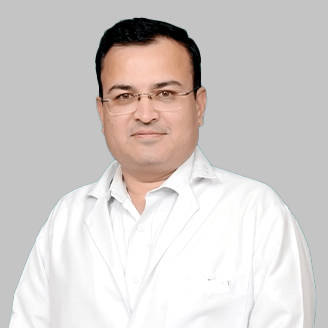
Dr. Sachin Adhikari
MBBS, MS, M.ch (PGI Chandigarh)
Neurosurgery
View More -

Dr. Arpit Agarwal
MBBS, MD (Medicine), DM (Neurology)
Neurology
View More -

Dr. Manoranjan Baranwal
MBBS, MD, DM
Neurology
View More -
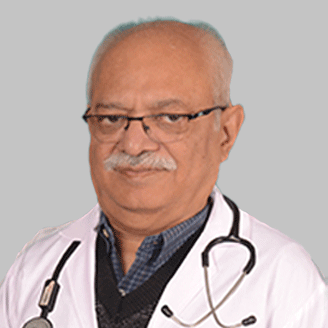
Dr. Sunil Athale
MD (Medicine), DM (Neurology)
Neurology
View More -

Dr. Ashish Bagdi
MBBS, MD (Medicine), DM (Neurology)
Neurology
View More -
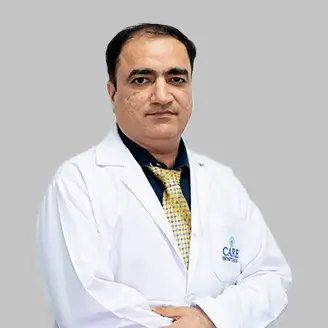
Dr. Abhishek Songara
MBBS, M.S, M.Ch (Neurosurgery )
Neurosurgery
View More -

Dr. Anand Soni
MD, DM (Neurology)
Neurology
View More -

Dr. Ankur Sanghvi
MBBS, MS, Mch (Neuro)
Neurosurgery
View More -

Dr. Arjun Reddy K
MBBS, MS, MCh
Epilepsy, Neurosurgery
View More -

Dr. Arun Reddy M
MBBS, DNB – Neurosurgery, FCVS (Japan), Fellow Endoscopic Spine
Epilepsy, Neurosurgery
View More -

Dr. Atmaranjan Dash
MBBS, MS, MCh (Neurosurgery - AIIMS Delhi), Fellowship in Minimally Invasive Spine Surgery, Fellowship in Endoscopic Spine Surgery
Neurosurgery
View More -

Dr. Bhavani Prasad Ganji
MBBS, DNB (Neurosurgery), Ex-Assistant Professor (NIMS)
Epilepsy, Neurosurgery
View More -

Dr. Bhuvaneswara Raju Basina
MBBS, MS (Orthopaedic Surgery), M.Ch (Neuro Surgery), Fellowship in Spine Surgery (USA), Fellowship in Functional & Restorative Neurosurgery (USA), Fellow in Radiosurgery (USA)
Epilepsy, Neurosurgery, Spine Surgery
View More -

Dr. Bikash Kumar Mishra
MD, DM (Neurology), Clinical Fellowship in Pain management (NIH,USA) Epilepsy Fellowship Program (North Carolina, USA)
Neurology
View More -

Dr. Bimal Prasad Padhy
MBBS, MD, DM
Epilepsy, Neurology
View More -

Dr. G Kishore Babu
MBBS, MD (General Medicine), DM (Neurology)
Neurology
View More -

Dr. Gaurav Sudhakar Chamle
MBBS, MS General Surgery, DNB Neurosurgery, Fellow in Endoscopic and Minimally Invasive Spine Surgery
Neurosurgery
View More -

Dr. Haritha Koganti
MBBS, MD (General Medicine), DM (Neurology)
Epilepsy, Neurology
View More -

Dr. J V N K Aravind
MBBS, MS, MCH
Epilepsy, Neurosurgery
View More -

Dr. K Sateesh Kumar
MBBS (OSM), MD (General Medicine), DM (Neurology)
Epilepsy, Neurology
View More -

Dr. K. Vamshi Krishna
MBBS, MS (General Surgery), MCh (Neurosurgery)
Epilepsy, Neurosurgery
View More -

Dr. Kailas Mirche
MBBS, MD (Internal Medicine), DM (Neurology)
Epilepsy, Neurology
View More -

Dr. Kapil Muley
MBBS, MS, MCH (Neurosurgery)
Neurosurgery, Spine Surgery
View More -

Dr. Laxminadh Sivaraju
MBBS, MCh (Neuro surgery)
Epilepsy, Neurosurgery
View More -

Dr. M P V Suman
MBBS, DNB (Gen Med), DrNB (Neurology), PDF (Headache-FWHS)
Neurology
View More -

Dr. Mamindla Ravi Kumar
MBBS, MS, MCh (NIMS), Fellow in Endospine (France) & UBE Spine Surgery (South Korea) & Minimally Invasive Spine Surgery Fellow in Skull Base Surgery (MS Ramaiag and WSBF)
Epilepsy, Neurosurgery
View More -

Dr. Mandar G Waghralkar
MBBS, MD (Internal Medicine), DM (Neurology), FINR, EDSI
Neurology
View More -

Dr. MGV Aditya
MBBS, MD (General Medicine), DM (Neurology)
Neurology
View More -

Dr. Mitalee Kar
MBBS, DNB (Medicine), DNB (Neurology)
Neurology
View More -

Dr. Murali Krishna CH V
MBBS, MD (General Medicine), DM (Neurology)
Epilepsy, Neurology
View More -
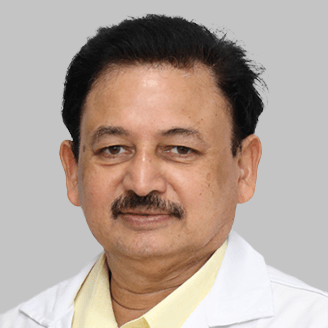
Dr. N.V.S Mohan
MBBS, MCh (Neuro Surgery), DNB
Neurosurgery
View More -

Dr. P. Chandra Shekar
MBBS, MD (Internal Medicine), DM (Neurology)
Epilepsy, Neurology
View More -

Dr. Parag Rameshrao Aradhey
MBBS, DNB (Medicine), DNB (Neurology)
Neurology
View More -

Dr. Prof. Umesh T
MBBS, MD (General Medicine), DM (Neurology), DNB (Neurology)
Epilepsy, Neurology
View More -

Dr. R. Kiran Kumar
MBBS, MD (General Medicine), DM (Neurology)
Epilepsy, Neurology
View More -

Dr. Rahul Pathak
MBBS, MD (General Medicine), DM (Neurology)
Neurology
View More -

Dr. Ramesh Penkey
MBBS, MD (General Medicine), DM (Neurology)
Epilepsy, Neurology
View More -

Dr. Randhir Kumar
MBBS, MS, MCh
Epilepsy, Neurosurgery
View More -

Dr. Ritesh Nawkhare
MBBS, MS (Gen. Surgery), MCh (Neurosurgery)
Neurosurgery
View More -
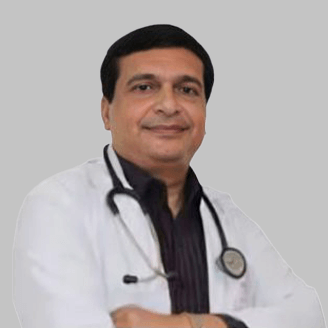
Dr. S K Jaiswal
MBBS, MD, DM Neurology
Epilepsy, Neurology
View More -

Dr. Sandeep Talari
MBBS, MS (General Surgery), MCh (Neurosurgery)
Neurosurgery
View More -

Dr. Sandesh Nanisetty
MBBS, DNB(General Medicine), MNAMS, DM(Neurology), SCE Neurology (RCP, UK), Fellow European Board of Neurology (FEBN)
Epilepsy, Neurology
View More -

Dr. Sanjay Sharma
MBBS, MD, DM
Neurology
View More -

Dr. Shashank Jaiswal
MBBS, DM (Neurology), PDF (Stroke Intervention), PDF (Epilepsy)
Epilepsy, Neurology
View More -

Dr. Siddharth Sharma
MBBS, MS (General Surgery), MCh (Neurosurgery)
Neurosurgery
View More -

Dr. Sucharita Anand
MBBS, MD Medicine, DM Neurology, PDF Clinical Neuro-Physiology
Neurology
View More -

Dr. Susant Kumar Das
MBBS, MS, MCh (Neurosurgery)
Neurosurgery
View More -

Dr. Teja Vadlamani
MBBS, DrNB (Neurosurgery)
Epilepsy, Neurosurgery
View More -

Dr. Umesh Kumar Chandra
MBBS, MD, DrNB
Neurology
View More -

Dr. Venkatesh Yeddula
MBBS, MS (General Surgery), M.Ch (Neurosurgery)
Epilepsy, Neurosurgery
View More -

Dr. Vijay Kumar Terapalli
MBBS, MS (General Surgery), MCh (Neurosurgery)
Neurosurgery
View More -

Dr. Vishal Gaikwad
MBBS, MD (General Medicine), DM- Neurology
Neurology
View More
Frequently Asked Questions
Couldn’t find what you were looking for?
Need any help? Get a Call Back.

Still Have a Question?

